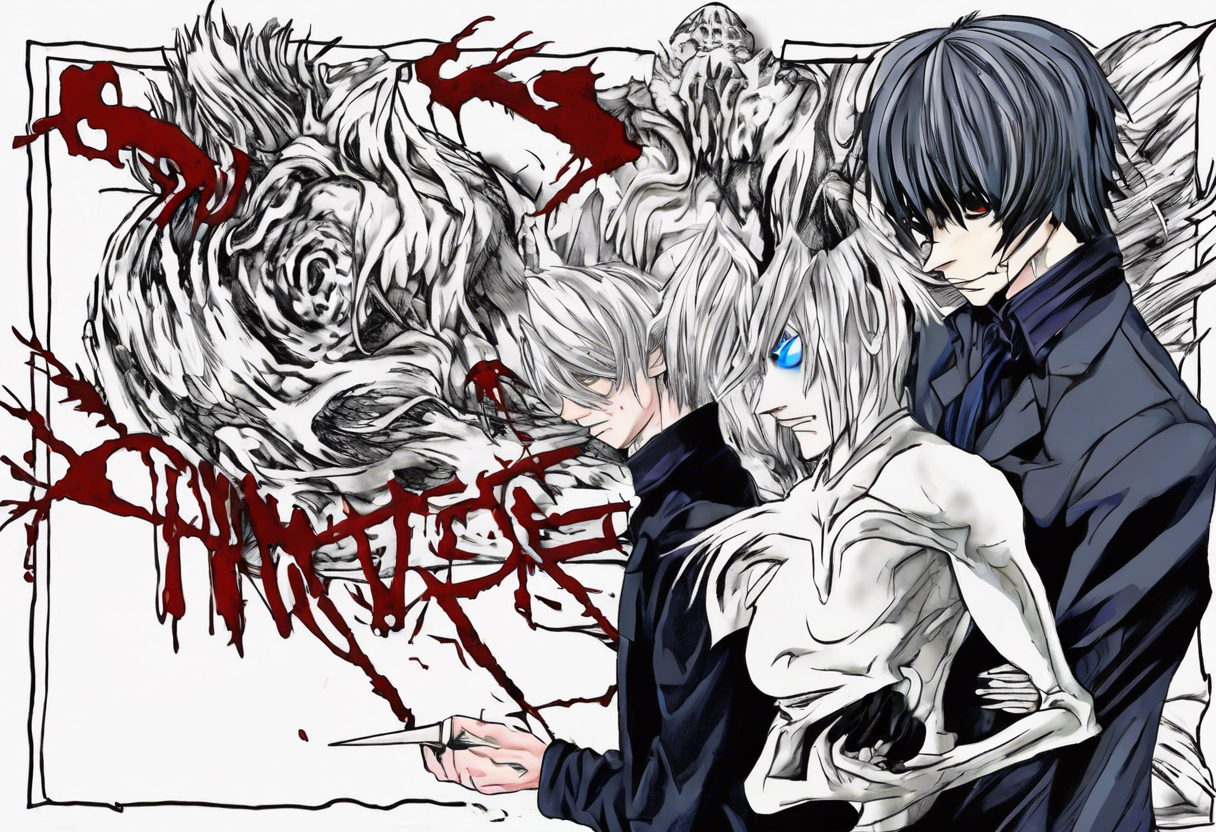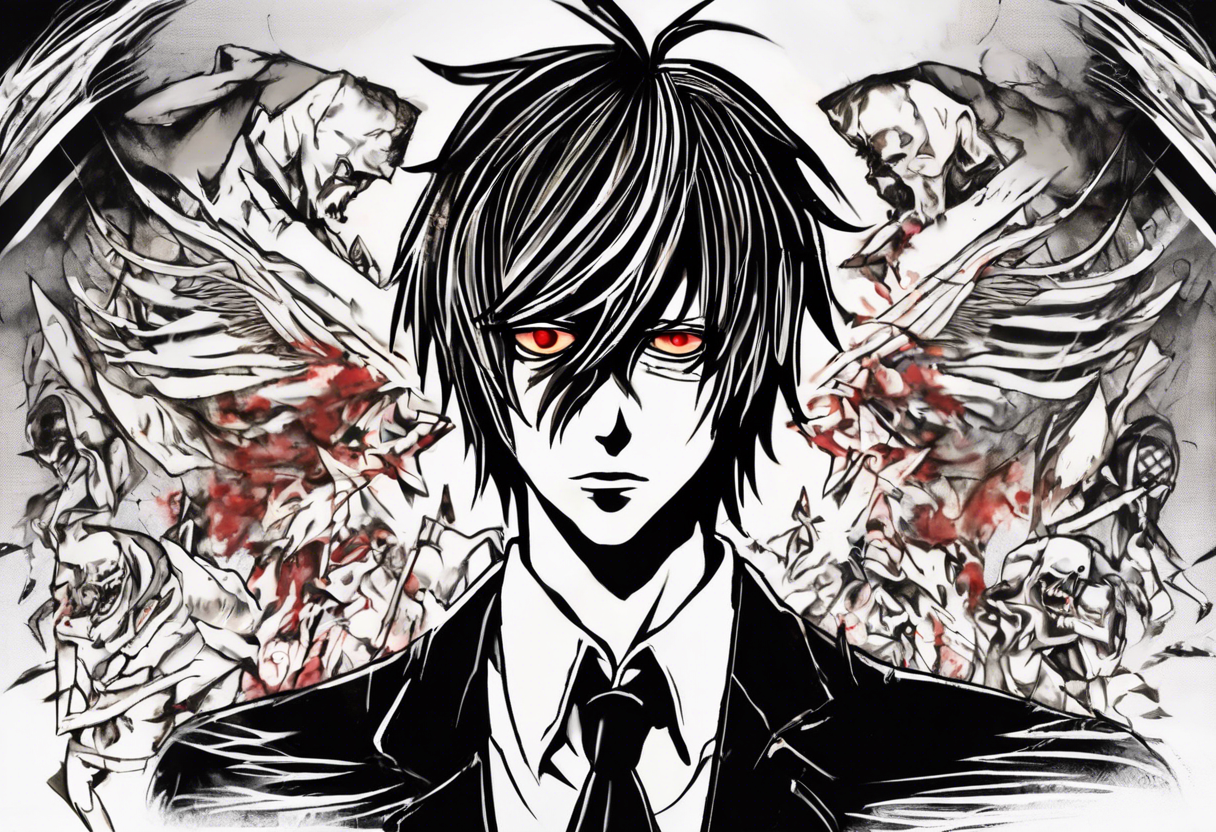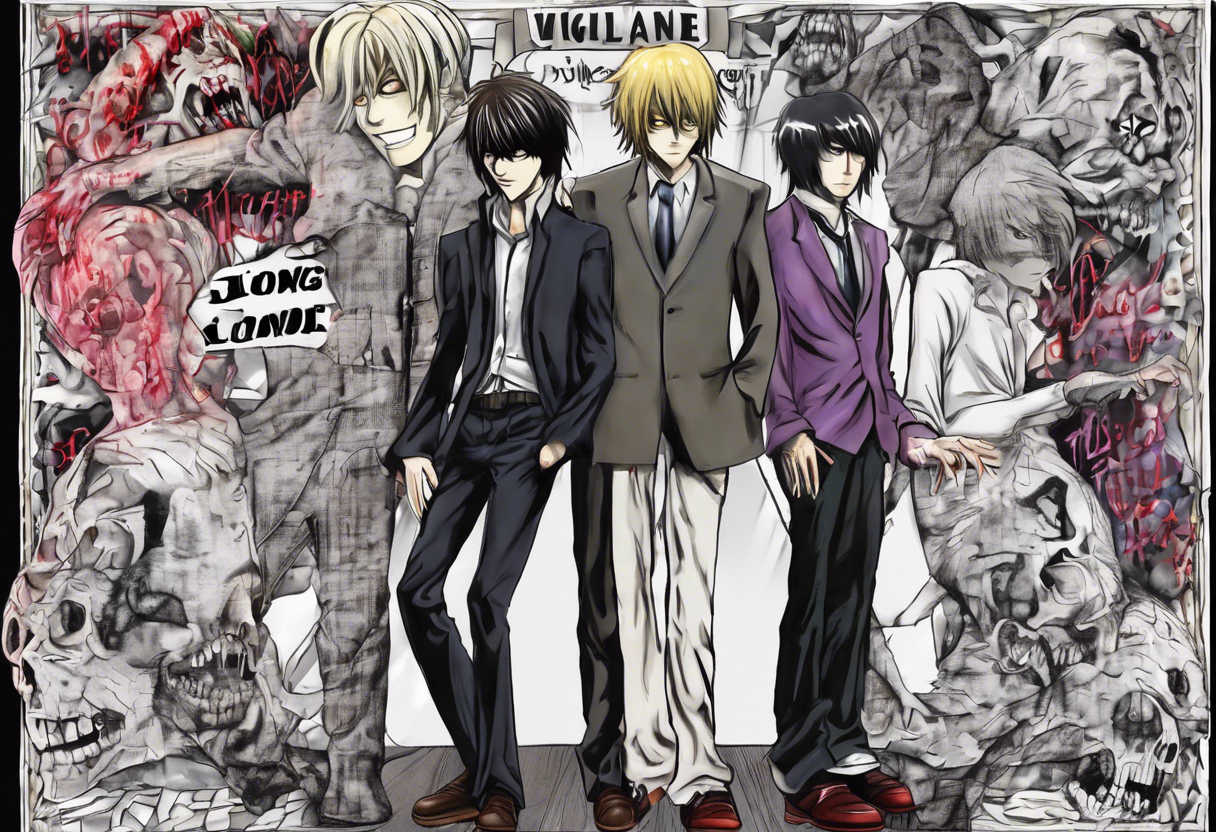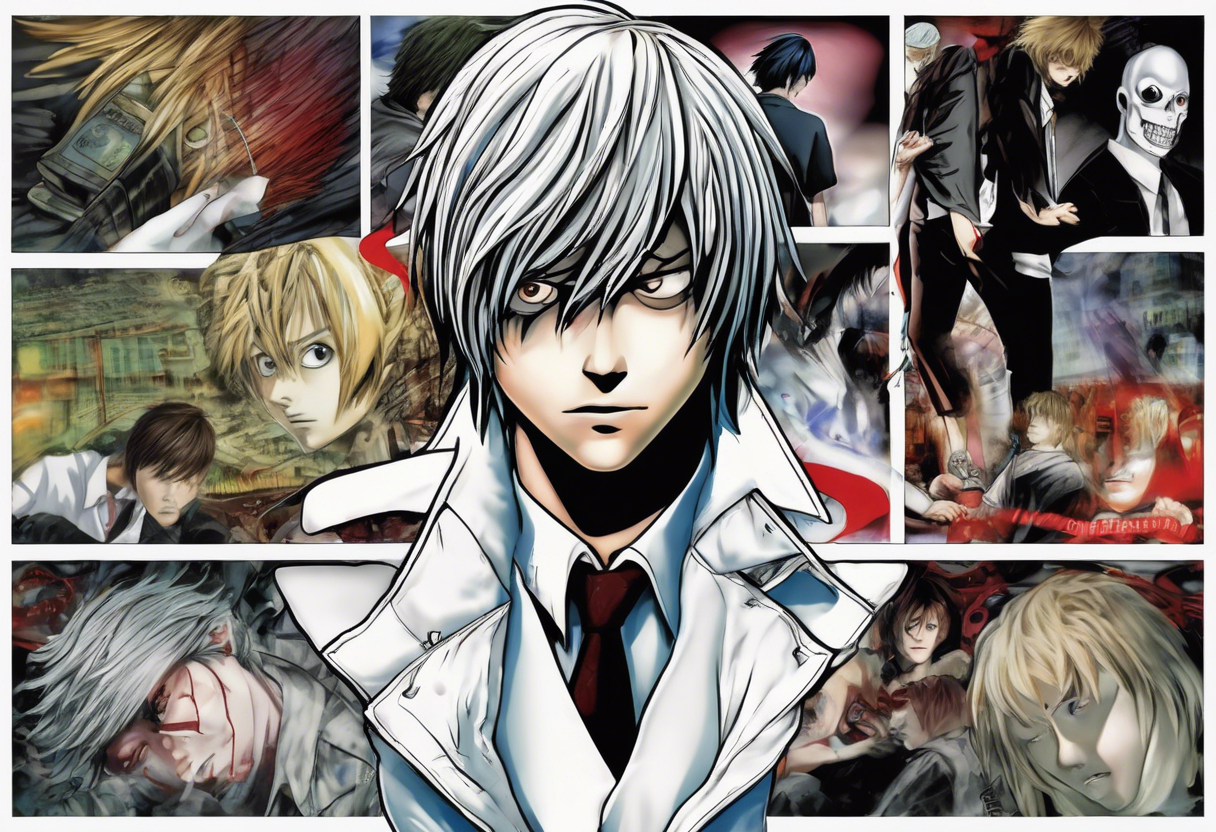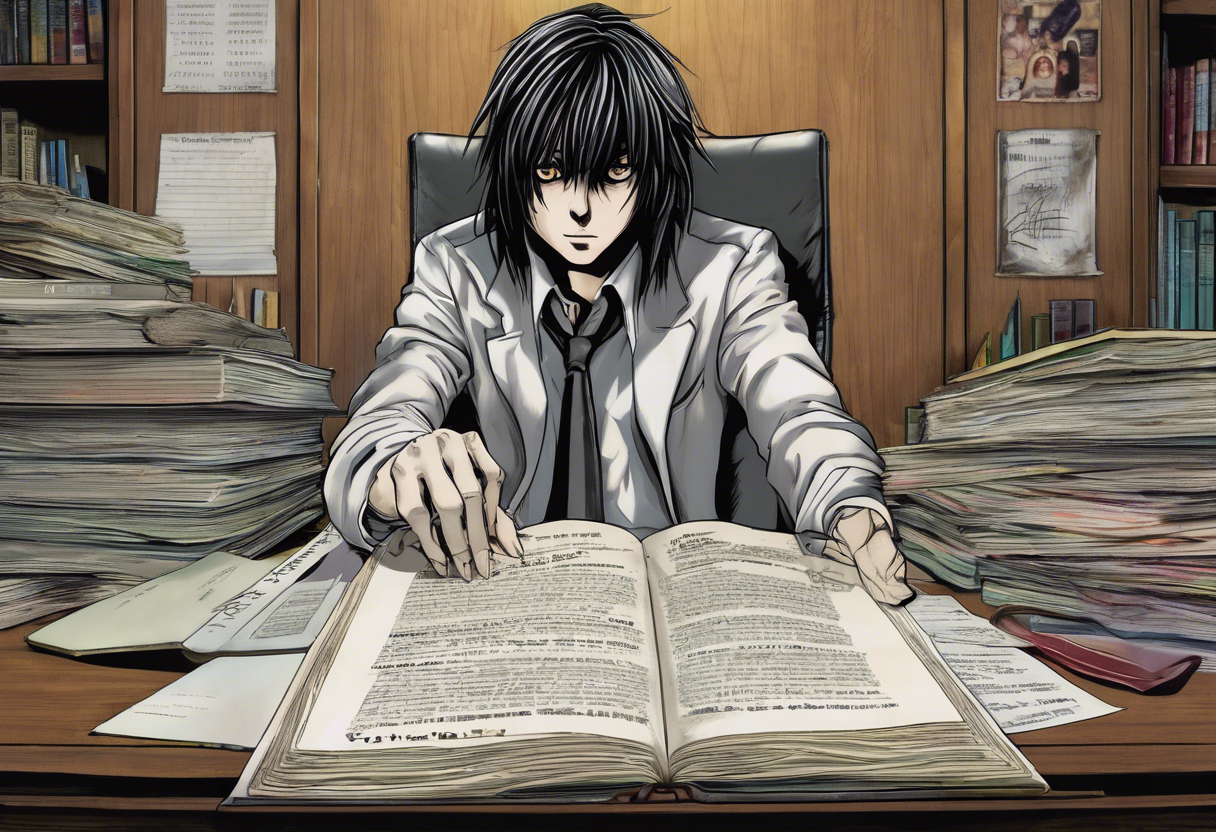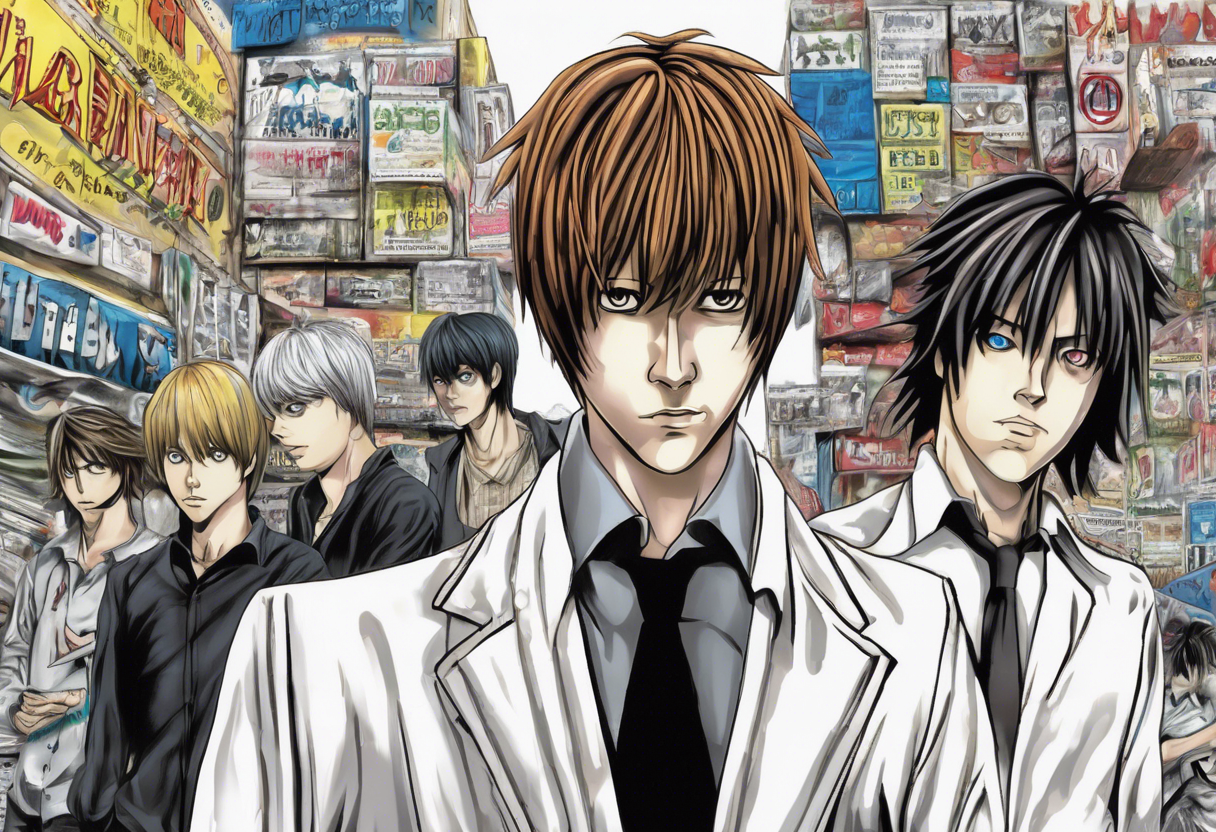Contents
Death Note: Vigilance – A Detailed Analysis
Introduction
"Vigilance" is the 34th episode of the anime series Death Note, which is based on the manga of the same name created by Tsugumi Ohba and illustrated by Takeshi Obata. The anime adaptation, directed by Tetsurō Araki and animated by Madhouse, began airing on Nippon TV on October 4, 2006, and concluded on June 27, 2007, with a total of 37 episodes.
"Vigilance" specifically aired on June 5, 2007, and is part of the latter half of the series where the stakes and tensions are significantly heightened. The episode is notable for its intricate plot developments and the strategic maneuvers of the characters involved.
The production of Death Note was a collaborative effort between Madhouse, Nippon Television, Shueisha, D.N. Dream Partners, and VAP. The series was licensed by Viz for distribution in North America, marking a significant milestone as it was one of the first Japanese anime properties to be made legally available in the United States for download while it was still airing in Japan [2].
Plot Summary
In "Vigilance," the narrative centers around the escalating cat-and-mouse game between Light Yagami, the owner of the Death Note, and the investigative team led by Near. Shuichi Aizawa, a member of the task force, begins to suspect that Light might be Kira, the serial killer who has been using the Death Note to eliminate criminals. Aizawa’s suspicions are confirmed when he observes Light’s unusual behavior, particularly his meticulous efforts to avoid being monitored.
Aizawa reports his findings to Near, who already has knowledge about the Death Notes. Near instructs Aizawa to continue monitoring Light while he devises a plan to separate Misa Amane, a key ally of Light, from him. This episode is crucial as it sets the stage for the final confrontations between Light and the investigative team, highlighting the strategic thinking and countermeasures employed by both sides [1].
Themes and Symbolism
"Vigilance" delves into several themes that are central to the Death Note series. One of the primary themes is the morality of justice and the consequences of playing god. Light’s actions, though motivated by a desire to create a utopian society without crime, raise questions about the ethics of taking lives, even if it is to achieve a perceived greater good.
The episode also explores the theme of vigilance itself, highlighting the constant surveillance and strategic planning that both Light and the investigative team must employ to outmaneuver each other. This theme is symbolized through the use of hidden cameras, wiretaps, and other surveillance methods, which underscore the paranoia and tension that permeate the narrative.
Additionally, the character dynamics, particularly the relationship between Light and Misa, are symbolic of the complexities of human connections and the lengths to which individuals will go to protect those they care about. Misa’s unwavering loyalty to Light and her willingness to risk her own life for him serve as a poignant example of the human element in a story dominated by intellectual battles and moral dilemmas [2].
Cultural Impact
"Vigilance" and the broader Death Note series have had a significant cultural impact since their release. The series was widely acclaimed for its intricate plot, deep character development, and philosophical themes, which resonated with audiences globally.
The anime’s release in North America through Viz’s "Download-to-Own" and "Download-to-Rent" services marked a new era in anime distribution, making it easier for fans to access and engage with Japanese content. The series also spawned several adaptations, including live-action films, video games, and stage productions, further expanding its reach and influence [2].
Critical Reception
"Vigilance" and the Death Note series as a whole received positive reviews from critics and audiences alike. The series was praised for its suspenseful storytelling, well-developed characters, and the moral complexities it presented.
Critics noted the series’ ability to balance intellectual intrigue with emotional depth, making it a standout in the psychological thriller genre. However, some critics also pointed out the pacing issues in certain episodes and the sometimes convoluted plot twists.
The series has also been subject to various interpretations and analyses, with some viewers focusing on its commentary on justice, morality, and the human condition. The debates and discussions sparked by the series have contributed to its enduring popularity and critical acclaim [2].
Legacy
The legacy of "Vigilance" and the Death Note series is profound. The series has inspired numerous other anime and manga creators, influencing the psychological thriller genre as a whole. Its impact can be seen in various other works that explore similar themes of morality, justice, and the complexities of human nature.
The series continues to be a favorite among anime enthusiasts and has been recognized for its contribution to the medium. The intricate plot and character dynamics have made it a subject of study in academic circles, examining its narrative structure, character development, and thematic depth.
In conclusion, "Vigilance" is a pivotal episode in the Death Note series, showcasing the series’ hallmark of intellectual suspense and moral complexity. Its influence on anime and popular culture is undeniable, and it remains a significant work in the genre of psychological thrillers.

